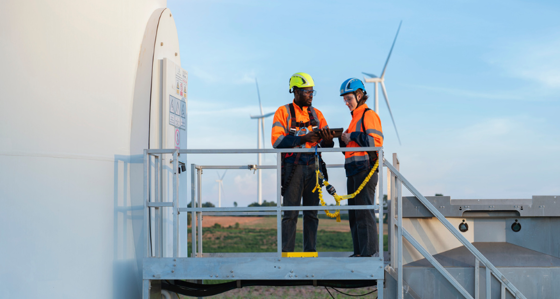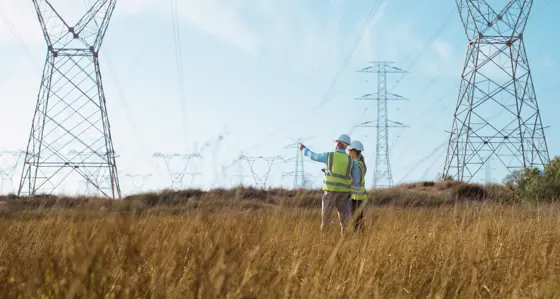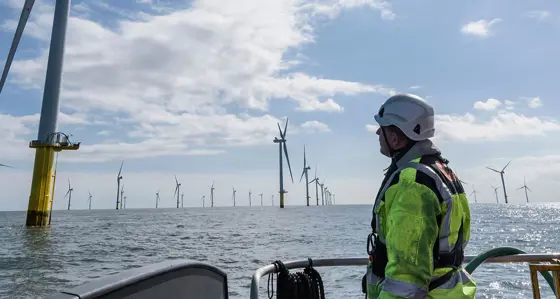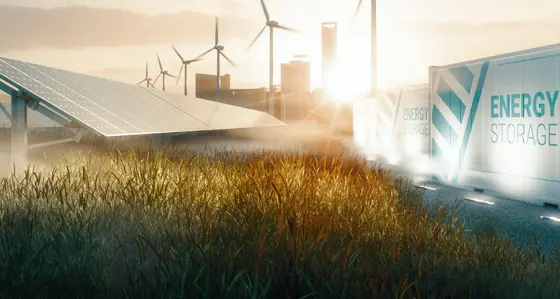
The role of the state in the Great British energy market
4 min read 25 July 2024
What is the state’s role in the Great British energy sector and how could it be extended to support decarbonisation objectives?
The state already plays an important role in the industry but given the ambition to decarbonise the power sector quickly, and on a path to achieving economy-wide net zero emissions, we think the role of the state needs to go further.
Working hand in hand with the private sector, the state could play four roles to successfully steer the Great British energy sector and address decarbonisation; as a planner, a developer, an investor and an enabler.
That’s the conclusion of a study Baringa conducted with innovation agency NESTA.
About the research
We combined our own research and analysis with extensive engagement with senior figures from across the energy industry.
We assessed three overarching problems that must be tackled:
-
The need for greater coordination and certainty
-
The need to pick up the pace
-
The need to ensure good value for money
We considered all energy delivered directly to businesses and customers, covering the following technologies:
-
Established low carbon power technologies, such as onshore wind, offshore wind, and solar photovoltaics.
-
Emerging low carbon technologies, such as hydrogen technologies, CCUS, SMRs, etc.
-
Transmission and distribution networks across energy vectors, including interconnectors and offshore grids.
Read the report to discover how the state could accelerate decarbonisation, and save costs while returning a greater proportion of benefits from the energy transition to citizens and enabling economic growth.
"Developed and tested with senior stakeholders from across the industry, we believe that these proposals could accelerate the country’s decarbonisation by two to four years and save costs while returning a greater proportion of energy transition benefits to citizens. By facilitating better alignment between energy and industrial strategies, they would also enable economic growth."
Duncan Sinclair, Partner, expert in Energy Policy and Regulation, Baringa
"The state can accelerate the net zero transition and lower costs in three ways. As a planner, it should be responsible for identifying where best to locate power stations and grid infrastructure, so we build in the right places and give clarity to the supply chain. As a pre-developer, it should prepare sites and fast track planning and consenting decisions, and grid connections. As an investor, it should co-invest in less established technologies that the private sector will not do alone."
Ravi Gurumurthy CEO, Nesta
Our Experts


Related Insights

Baringa deepens Nordic footprint with launch of Copenhagen office
Baringa takes significant step in European growth journey with launch of Nordics office.
Read more
Flexibility Market Reports - Bankable, reliable projections
Equipping you with the insight you need to make informed and timely decisions about investing in energy flexibility technologies. Subscribe to our Flexibility Market Reports for a holistic view of the market, with a focus on energy storage.
Read more
Money still backs batteries in Great Britain
Read this article for an exploration of why GB remains an attractive battery storage market – not just on a spreadsheet, but in substance, for those looking to build, acquire, or finance BESS.
Read more
REMA Unveiled: dissecting the Government’s decision in favour of Reformed National Pricing
Explore the Government’s REMA decision favouring reformed national pricing and its impact on investment signals, grid planning and market efficiency.
Read moreRelated Client Stories

Maintaining the stability of the New South Wales power system
How do you ensure the future stability of the NSW power system?
Read more
Shaping a self-generation strategy for a major data centre
How do you develop an energy generation plan that balances sustainability with commercial due diligence?
Read more
Evaluating the case for the world’s biggest offshore wind project
We helped our client reach financial close for all three phases of the project, securing 15-year CfDs with delivery between 2023-2025.
Read more
Green Hydrogen value-chains unpacked
Mapping and analysis of the potential of Green Hydrogen across multiple European markets helped our client’s strategic focus and investment decision-making.
Read moreIs digital and AI delivering what your business needs?
Digital and AI can solve your toughest challenges and elevate your business performance. But success isn’t always straightforward. Where can you unlock opportunity? And what does it take to set the foundation for lasting success?